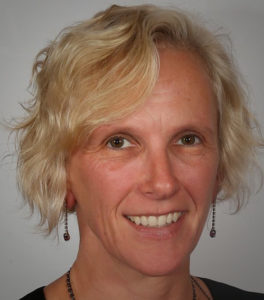by Gary Glissman
 AXYS has a new and, for the first time ever, full-time Executive Director! After a multi-month recruitment and interview process, the AXYS Board of Directors was pleased to offer the position to Carol Meerschaert who began her new role on October 7. (See Carol’s message in the upcoming fall newsletter from AXYS, later this month.)
AXYS has a new and, for the first time ever, full-time Executive Director! After a multi-month recruitment and interview process, the AXYS Board of Directors was pleased to offer the position to Carol Meerschaert who began her new role on October 7. (See Carol’s message in the upcoming fall newsletter from AXYS, later this month.)
The recruitment process was led by Robert Miller who has served as the part-time AXYS interim Executive Director for the past two and a half years. As planned, Robby will return to his original role with AXYS where he will concentrate on developing the AXYS Clinic & Research Consortium and other strategies to further the goals of the organization.
Carol brings considerable experience to AXYS including time as president of a small biotech company, Executive Director of the Massachusetts Dietetic Association, and work with the Healthcare Businesswomen’s Association. From a pool of 34 applicants, Carol impressed the Board’s recruitment team with her clarity of vision, her relevant skills, and her sincerity. You will learn more about her in the weeks to come. We are excited to have her on the AXYS team.
This is a huge step for AXYS. Establishing a full-time role in this critical position will allow us to better focus our time and energies on the multiple and demanding objectives that we know are important to the X and Y variation community. The Board looks forward to working side-by-side with Carol to implement many expanded services and new initiatives in the years to come.
We also wish to thank Robby for providing steady leadership, and for the many positive changes he has brought about during his tenure as the Executive Director (see this link for some of those accomplishments.) This list does not include internal improvements that involved strategic direction, operational efficiencies, and improving our financial status. We are grateful for his continuing presence with AXYS to work with Carol, and as our Director of Clinic and Strategic Initiatives.
Finally, many thanks to all of you who continue to be involved with AXYS through financial support, volunteer time, participation in support groups, social media pages, and much more. We have come a long way in recent years but still have many things to accomplish and with your continued help and interest we will see even more success. Please join me in welcoming Carol to our AXYS family!

 AXYS has a new and, for the first time ever, full-time Executive Director! After a multi-month recruitment and interview process, the AXYS Board of Directors was pleased to offer the position to Carol Meerschaert who began her new role on October 7. (See Carol’s message in the upcoming fall newsletter from AXYS, later this month.)
AXYS has a new and, for the first time ever, full-time Executive Director! After a multi-month recruitment and interview process, the AXYS Board of Directors was pleased to offer the position to Carol Meerschaert who began her new role on October 7. (See Carol’s message in the upcoming fall newsletter from AXYS, later this month.)